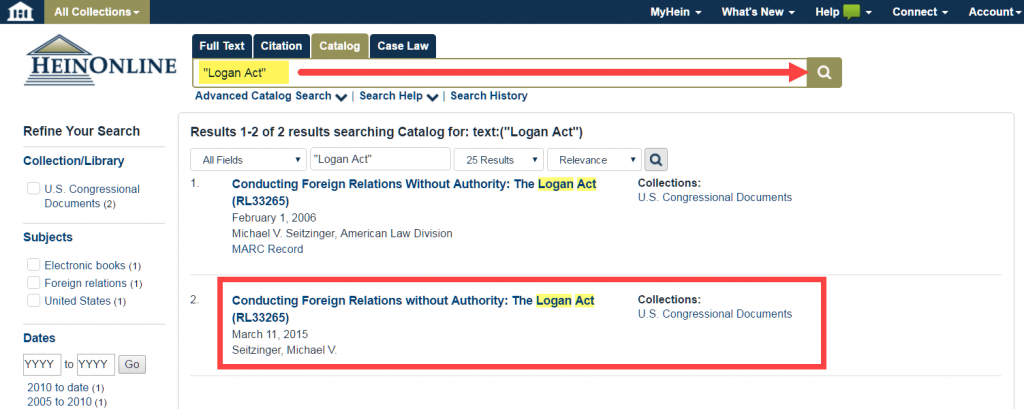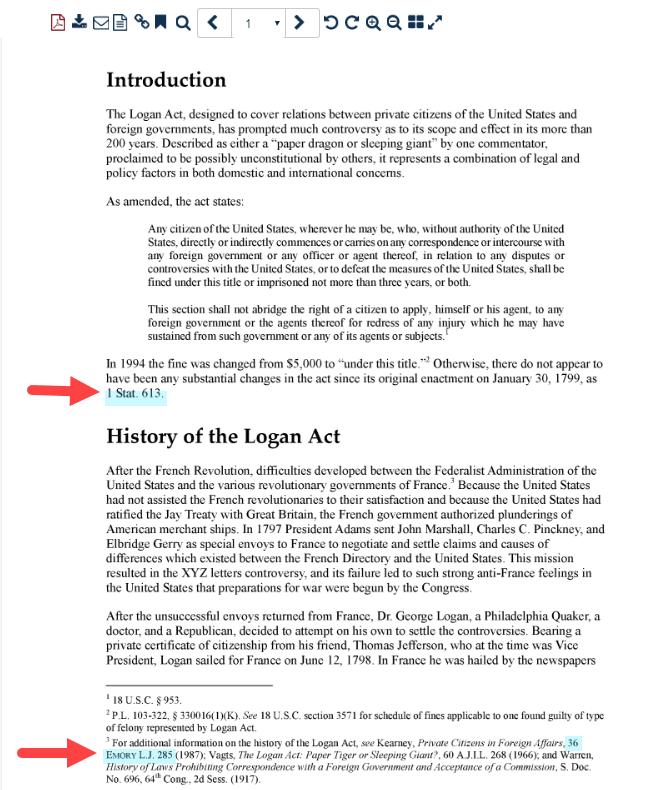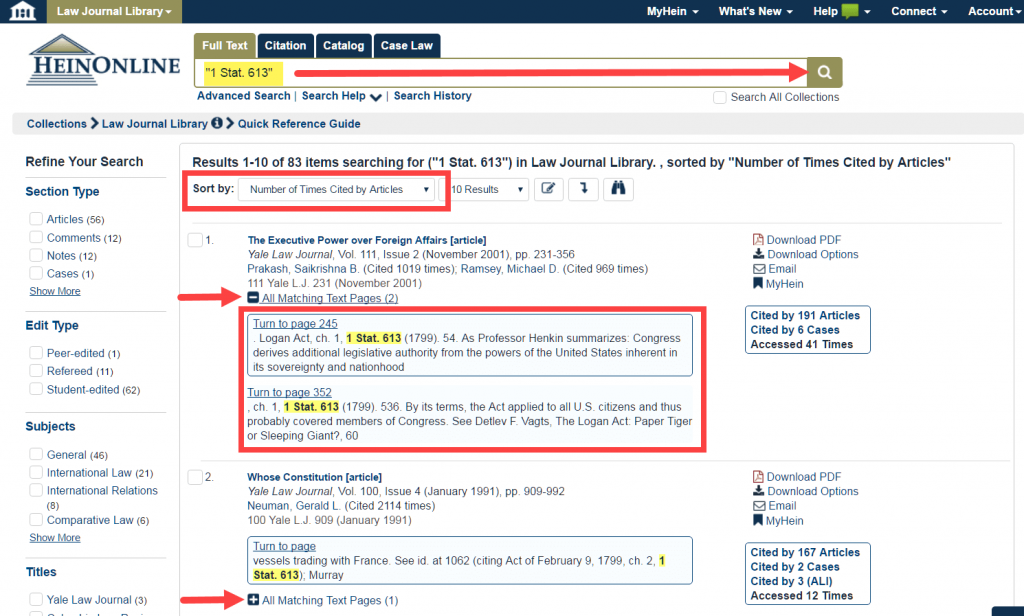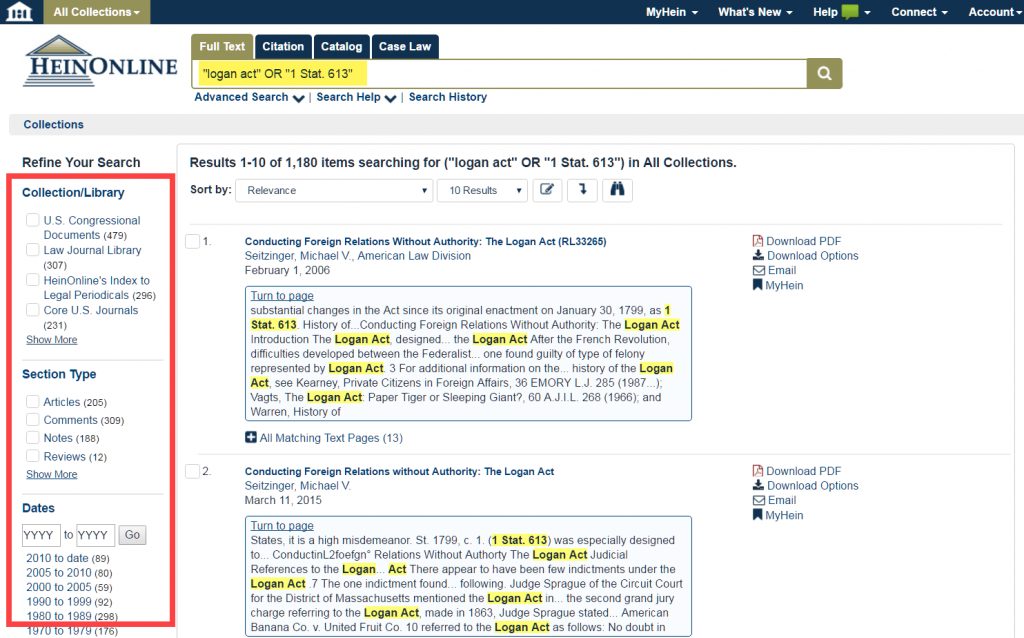After less than one month of service, retired U.S. Army lieutenant general Michael T. Flynn resigned as United States national security advisor on February 13, 2017 after a controversy arose about his prior conversations with Sergey Kislyak, the Russian ambassador to the United States.
Leading up to Flynn’s official resignation were allegations of inappropriate telephone discussions with Kislyak regarding the Obama administration’s expulsion of Russian diplomats and sanctions against Russia during the transition period prior to the inauguration of President Trump. He subsequently misled Vice President Pence regarding these conversations.
Press coverage about the phone calls and presidential transition discussed the possibility of Mike Flynn potentially being subject to further punishment other than his resigning, including possible prosecution under the Logan Act.
More about the Logan Act
President John Adams signed the Logan Act (1 Stat. 613) into law on January 30, 1799. It was later amended in 1994. The law addresses U.S. citizens’ private correspondence with foreign governments or interference in foreign diplomacy. 18 U.S.C. 953 (2012) states:
Any citizen of the United States, wherever he may be, who, without authority of the United States, directly or indirectly commences or carries on any correspondence or intercourse with any foreign government or any officer or agent thereof, with intent to influence the measures or conduct of any foreign government or of any officer or agent thereof, in relation to any disputes or controversies with the United States, or to defeat the measures of the United States, shall be fined under this title or imprisoned not more than three years, or both.
This section shall not abridge the right of a citizen to apply, himself or his agent, to any foreign government or the agents thereof for redress of any injury which he may have sustained from such government or any of its agents or subjects.
Find more in HeinOnline
Search for the phrase “Logan Act” in the HeinOnline catalog tab in any page in HeinOnline:

Select the Congressional Research Service report from March 11, 2015, Conducting Foreign Relations without Authority: The Logan Act (RL33265) to view the full text. Whenever available, HeinOnline will provide blue inline hyperlinks to additional material available:

Select 36 Emory L.J. 285 to view the full text article, Private Citizens in Foreign Affairs: A Constitutional Analysis Comment.
Looking for articles that cite to the official law?
Enter the Law Journal Library and do a full text phrase search of “1 Stat. 613”. To view the most influential articles, use the sort by drop down menu to select Number of Times Cited by Articles. Select All Matching Text Pages to view search terms within context of full text. You may notice we’ve recently shortened the text provided per a customer request in order to quickly review the material:

Don’t forget to refer to the links provided by ScholarCheck located to the right of each search result. Links include cited by articles, cases, and ALI (American Law Institute) when available.
Looking for more?
Search across all subscribed HeinOnline databases from your welcome page. Enter “logan act” OR “1 Stat. 613” under the Full Text tab. Use the facets on the left side of the page to further narrow your results by collection, section type, and date:

Why Mike Flynn has been linked to violating the Logan Act
While President Trump named Flynn as his national security advisor in November 2016, this was before he was sworn in as president. During December 2016, Flynn had discussed the Obama Administration sanctions with the Russian ambassador.
However, to date, no one has ever been convicted under the Logan Act. Prosecution under the Logan Act is highly unlikely, as most people agree it is unconstitutional violating the First Amendment‘s protection of freedom of speech and freedom of association.
Additionally, the law itself is vague, and criminal laws must be specific in order to ensure the person in question is aware when they are in violation of the law. Given General Flynn’s early appointment during the transition of the presidents, it is not clear he was acting without authority.
Please contact our support team at (800) 277-6995, email us, or chat with us with us for additional assistance searching and navigating in HeinOnline.



